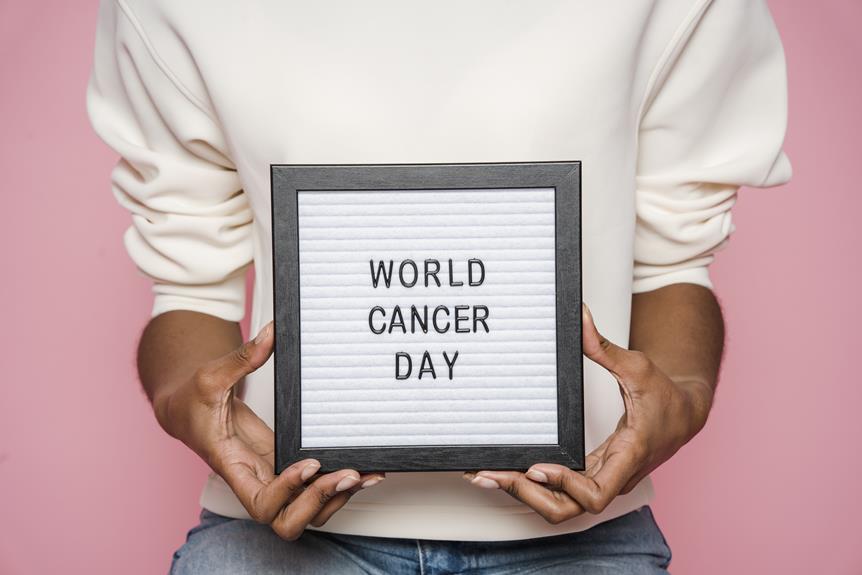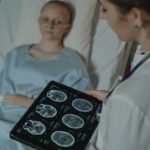Unveiling the Secrets to Cancer Prevention
This article, 'Unveiling the Secrets to Cancer Prevention', provides a comprehensive exploration into various preventive strategies against cancer. It delves into the significance of a healthy lifestyle, avoidance of cancer-causing substances, use of preventative medications, and understanding of personal risk factors. It further underscores the impact of genetics on cancer risk, emphasizing the importance of genetic testing and personalized prevention strategies. The information is essential for individuals seeking to mitigate their cancer risk.

Key Takeaways
- Regular exercise and maintaining a healthy weight are important for reducing the risk of cancer.
- A balanced diet with fruits and vegetables can help decrease the chances of developing cancer.
- Limiting alcohol consumption and avoiding tobacco products significantly lower the risk of cancer.
- Minimizing exposure to harmful chemicals, radiation, air pollution, and certain food additives and preservatives can help prevent cancer.
Healthy Lifestyle and Cancer Prevention
Over the course of a lifetime, adopting a healthy lifestyle plays a pivotal role in significantly reducing the risk of developing cancer. Exercise benefits are manifold, with regular physical activity being a key factor in maintaining overall health. It not only aids in controlling body weight, but also reduces the risk of various types of cancer including breast, colon, lung and kidney. In tandem with exercise, dietary choices significantly impact cancer prevention. A diet rich in fruits, vegetables, whole grains, and lean proteins, while limiting intake of processed and red meats, can help decrease the risk of certain cancers. Moreover, reducing alcohol consumption and avoiding tobacco usage further contribute to a cancer-preventive lifestyle. These lifestyle modifications are essential tools in the fight against cancer.
Avoiding Cancer-Causing Substances
To enhance your cancer prevention strategy, it is vital to identify and avoid exposure to known carcinogens or cancer-causing substances, and this involves both lifestyle changes and protective measures in your environment. For instance, protective measures against radiation include usage of sunscreen and limiting time spent under direct sunlight. It is also important to avoid unnecessary medical radiation.
In terms of harmful chemicals, they are often present in workplaces, homes, and even in the food we eat. Therefore, minimizing exposure to such substances is crucial. This can be achieved by using protective equipment at work, choosing products with fewer synthetic chemicals, and opting for organic food to limit intake of pesticide residues. Awareness and proactive measures are key in this regard.
Medicines and Vaccines for Cancer Prevention
Harnessing the power of scientific innovation and medicine, we can explore the role of certain drugs and vaccines in the prevention of cancer. Immunotherapy has emerged as a powerful tool in this fight, stimulating the patient's immune system to destroy cancer cells more effectively. Its role in cancer prevention continues to be researched, with promising findings. Simultaneously, the field of cancer prevention has been revolutionized by the development of specific vaccines. The HPV and Hepatitis B vaccines, for instance, have significantly reduced the incidence of related cancers. Moreover, emerging vaccines targeting other cancer-causing agents are in various stages of development and clinical testing. These advancements underscore the potential of medicines and vaccines in cancer prevention strategies.
Risk Factors for Cancer
The identification of various risk factors for cancer plays a crucial role in the development of effective prevention strategies. Inherited mutations, such as BRCA1 and BRCA2, heighten the risk of certain cancers, making genetic testing a vital tool. It allows for early detection of these mutations, thus facilitating personalized prevention strategies to those at high risk. These strategies primarily involve regular health screenings and lifestyle alterations. Additionally, the impact of infections on cancer risk cannot be undermined. Certain infections like the Human Papillomavirus (HPV) can lead to cancer, underscoring the importance of vaccines and antiviral medications. Thus, understanding these risk factors aids in reducing the global cancer burden.
Genetic Factors and Cancer Risk
Delving into the realm of genetic factors, we find an intricate web of inherited traits and mutations that significantly contribute to an individual's cancer risk. These include inherited mutations, such as BRCA1 and BRCA2, which notably elevate the risk of breast and ovarian cancer. Thankfully, advances in modern medicine have allowed us to tap into these genetic insights through genetic testing. The benefits of genetic testing are manifold; they allow for early detection of cancer susceptibility and facilitate personalized prevention strategies. These strategies can be tailored to an individual's unique genetic makeup, thereby mitigating their risk. Understanding one's genetic predisposition towards cancer can be a powerful tool, enabling proactive steps towards timely prevention and management.
Frequently Asked Questions
How Does Stress and Mental Health Influence the Risk of Developing Cancer?
Chronic stress and poor mental health can potentially increase the risk of developing cancer. Stress disrupts the body's hormonal balance, which can accelerate cellular damage and inflammation, leading to carcinogenesis. Emotional resilience is crucial in mitigating these effects, helping individuals cope with stress efficiently. Moreover, effective stress management techniques, such as regular exercise and mindfulness, can improve mental health and potentially lower cancer risk by regulating the body's stress response.
Are There Any Specific Lifestyle Changes Recommended for Individuals With a Family History of Cancer?
For individuals with a family history of cancer, specific lifestyle modifications are crucial. Genetic counseling can help identify potential risks and guide preventive measures. Dietary modifications, including increased intake of fruits and vegetables and reduced consumption of processed foods and red meat, can significantly lower cancer risk. Regular exercise, avoidance of tobacco and alcohol, and maintaining a healthy weight are also recommended. These changes can help mitigate inherited cancer risks.
How Does the Risk of Cancer Vary Between Different Genders and Ethnic Groups?
Cancer risk can vary significantly between different genders and ethnic groups due to genetic, environmental, and lifestyle factors. Research indicates certain cancers are gender-specific; for example, prostate cancer in men and breast cancer in women. Ethnicity-based research also reveals disparities in cancer incidence and mortality rates among diverse populations. Understanding these variations is crucial for developing targeted prevention strategies and improving health outcomes.
Besides the Mentioned Preventive Measures, Are There Any Alternative or Holistic Approaches to Cancer Prevention?
Alternative or holistic approaches to cancer prevention can include dietary interventions and the use of herbal supplements. Dietary interventions involve consuming certain foods or nutrients that have been linked to cancer prevention. Herbal supplements, on the other hand, may contain plant-based compounds with anticancer properties. However, it is crucial to note that while these methods might aid in reducing cancer risk, they should be used in conjunction with, not as replacements for, traditional preventive measures.
What Role Does Regular Health Screening Play in Cancer Prevention and Early Detection?
Regular health screening plays a crucial role in cancer prevention and early detection. It aids in identifying cancer at an early stage, improving the chances of successful treatment. Despite some Screening Controversies, the benefits cannot be understated. Technological Advances have made screenings more accurate and less invasive, contributing significantly to cancer prevention strategies. Regular screenings are vital for those with high-risk factors, ensuring timely intervention and management.
Conclusion
This article elucidates essential cancer prevention strategies, emphasizing the importance of a healthy lifestyle, avoidance of carcinogens, beneficial medicines and vaccines, and understanding individual risk factors. It sheds light on the significant role of genetics in determining cancer susceptibility and the potential of personalized prevention strategies. By equipping individuals with such knowledge, it empowers them to actively mitigate their own cancer risk, underlining the importance of proactive health management.

This post has been generated by AI and was not reviewed by editors. This is Not legal advice. Please consult with an attorney.




